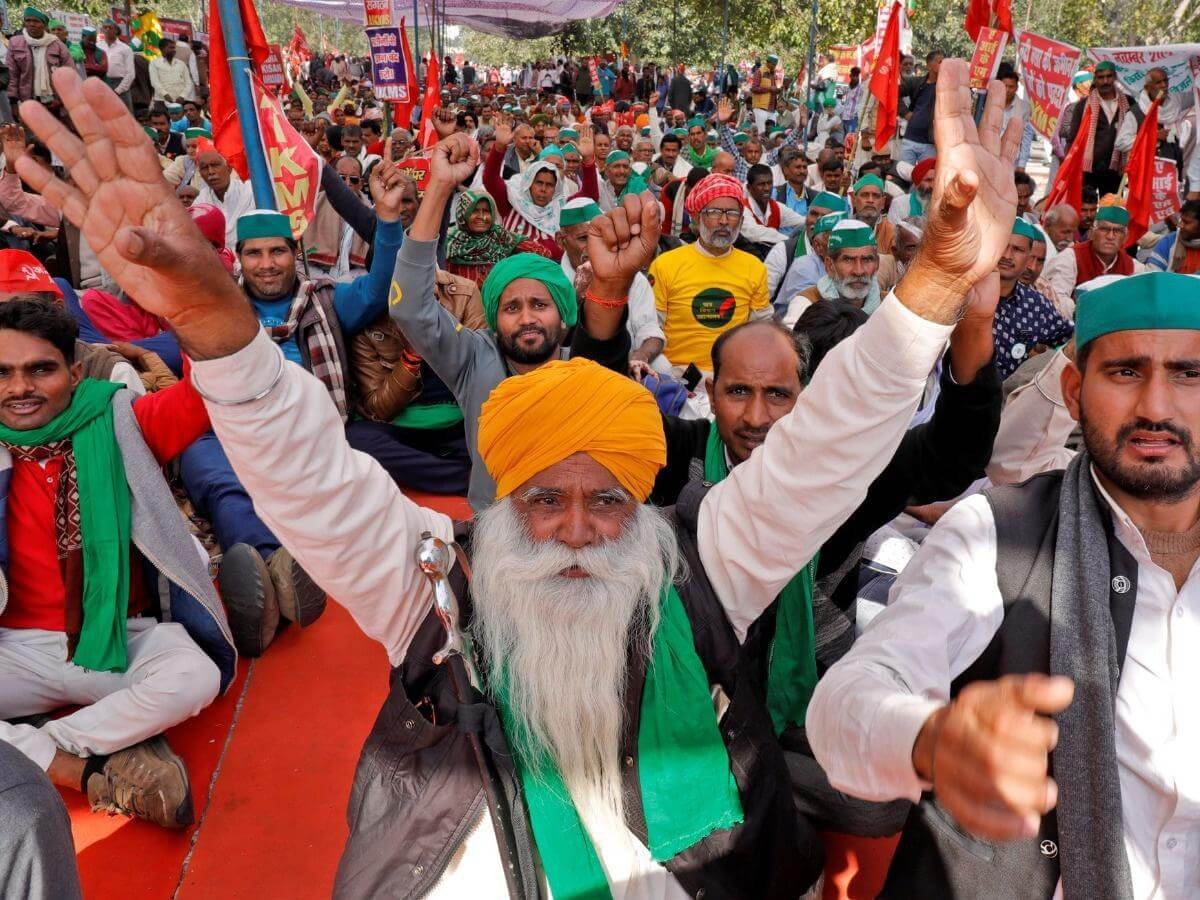Thousands of farmers gathered in Lucknow, Uttar Pradesh despite Indian Prime Minister (PM) Narendra Modi’s decision last Friday to repeal the three controversial farm laws.
After a short-lived celebration over Modi’s decision to repeal the laws, Samyukta Kisan Morcha, an umbrella organisation of over 40 farmers’ unions, held a core committee meeting over the weekend. Following the discussion, protest leaders clarified that demonstrations will continue until all the farmers’ demands have been met.
The unions have called for the revocation of fines and other penalties against them for crop burning, which has grown to be a major issue of concern due to the worsening air quality in New Delhi each year. In addition, the farmers have urged the central government to take back the draft electricity bill over concerns that their access to free or subsidised power, which is largely used for irrigation, will be taken away by state governments. Furthermore, they are seeking compensation for the death of the farmers killed during the protests, along with the release of the union leaders and members. They are also calling for the dismissal of Union Minister Ajay Misra Teni, whose son was responsible for the Lakhimpur Kheri incident in October, when four protesters and a journalist were run over by a car. During the harrowing incident, three others were also lynched by protesters in the ensuing violence.
Their key demands also include the extension of minimum support prices (MSP) to all crops and not just rice and wheat. Currently, the government purchases rice and wheat from farmers at a guaranteed minimum support price. However, farmers have been calling for the government to extend this privilege, which currently only benefits 6% of the country’s millions of farmers, to other crops. Just this Sunday, the Samyukta Kisan Morcha said, “Minimum Support Price, based on the comprehensive cost of production, should be made a legal entitlement of all farmers [and] for all agricultural produce.”
Since the controversial farm laws were passed in September 2020, tens of thousands of farmers have been protesting and calling for the complete repeal of the laws. Previously, the government agreed to suspend the laws and negotiate with farmers’ unions. However, the Samyukta Kisan Morch stood their ground and continued to call for the complete repeal of the laws through several rounds of negotiations.
The agricultural reform bills that have led to this nationwide agitation—The Farmers’ Produce Trade And Commerce (Promotion And Facilitation) Bill, The Farmers (Empowerment and Protection) Agreement on Price Assurance and Farm Services Bill, and The Essential Commodities (Amendment) Bill—have been criticised for being too liberalised and for assuming that the current structure is devoid of private entities. Farmers fear that changes to the crucial minimum support price clause, coupled with the ease of business for corporate entities, will further complicate their lives, as they already struggle to sell their produce. Further, the laws have been slammed for being opaque and providing no redressal mechanisms or sureties to farmers, with the government essentially stepping back from its role as a guarantor in a free market system.
The continuation of the protests are particularly critical as Uttar Pradesh approaches state elections that are scheduled for early next year. A significant proportion of the state’s population relies on agriculture-related work. In this respect, it has been argued said that the decision to repeal the three controversial laws deprives the Opposition leaders of a critical talking point ahead of the elections. However, with the protests still continuing, the issue is likely to still be a central talking point among voters and parties.

